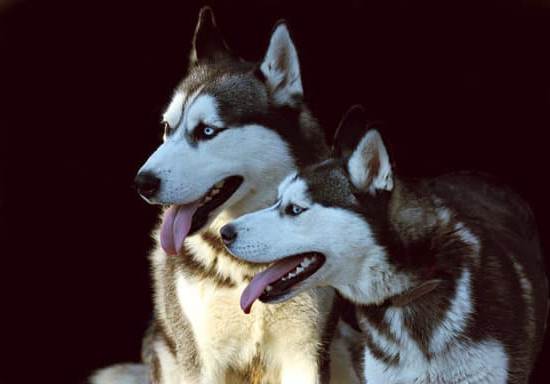Welcome to our guide on how to train your dog to hunt rats. In this article, we will delve into the fascinating world of using dogs for rat hunting, exploring their history, purpose, and the benefits of employing their natural abilities for pest control. Rat hunting with dogs has been a longstanding practice that continues to be effective in controlling rat populations.
Dogs have been utilized for rat hunting for centuries due to their keen sense of smell, agility, and instinctual drive to chase and catch small prey. As a result, they have proven to be valuable assets in managing pest problems in various environments such as farms, warehouses, and urban areas. The presence of dogs can greatly reduce the prevalence of rats and other rodents, making them an invaluable tool for pest control.
In order to effectively train a dog to hunt rats, it is essential to understand not only the behavior and habits of the prey but also the characteristics and traits owners should look for in potential rat-hunting breeds. By selecting the right breed and providing proper training, owners can harness their dog’s natural abilities to become efficient rat hunters.
Join us as we explore the world of rat hunting with dogs and learn how you can unleash your canine companion’s potential in this specialized field.
Understanding Rat Behavior
Rats are among the most common and troublesome pests found in both urban and rural areas. Their ability to reproduce quickly and their tendency to carry diseases make them a major concern for homeowners, business owners, and agricultural producers alike. Understanding rat behavior is crucial in effectively controlling and managing their populations.
To begin with, rats are nocturnal creatures, meaning they are most active at night. This makes them difficult to spot during the day and also means that they can cause significant damage undetected. Rats are omnivorous, meaning they will eat just about anything, from fruits and vegetables to meat and grains. This adaptability allows them to thrive in a variety of environments.
Rats are also highly social animals that live in colonies with well-defined social structures. They communicate with each other using a combination of vocalizations, body language, and scent marking. Understanding these behaviors can provide valuable insights into how to control and eradicate rat populations.
When it comes to pest control, one effective method is enlisting the help of specially trained dogs. Dogs have been used for centuries to hunt rats, thanks to their keen sense of smell and natural hunting instincts. In fact, many dog breeds have been specifically bred for this purpose. Training a dog to hunt rats can be an effective and environmentally friendly way to manage rat populations without relying on harmful chemicals or traps.
If you’re interested in learning how to train your dog to hunt rats, there are several important factors that need to be considered. From understanding rat behavior patterns to selecting the right breed of dog for hunting, there are key elements that must be addressed for successful training results.
- Rats are nocturnal creatures
- They are omnivorous
- Rats live in colonies with well-defined social structures
Choosing the Right Dog Breed
When it comes to training your dog to hunt rats, choosing the right breed is crucial. Not all dogs are suited for rat hunting, so it’s important to consider the characteristics and traits of each breed before making a decision. Here are some popular dog breeds that are well-suited for rat hunting:
- Rat Terrier: As the name suggests, Rat Terriers are specifically bred for hunting and eliminating rats. They are known for their high energy levels and strong prey drive, making them excellent rat hunters.
- Jack Russell Terrier: These small but mighty dogs are fearless and tenacious when it comes to hunting. Their size allows them to navigate tight spaces where rats may be hiding.
- Cairn Terrier: Originating from Scotland, Cairn Terriers were originally used for controlling vermin on farms. They are brave, intelligent, and have a strong instinct for hunting rats.
When choosing a dog breed for rat hunting, it’s essential to look for specific characteristics and traits. A successful rat-hunting dog should possess the following qualities:
- High prey drive: Look for a breed with a strong instinct to chase and hunt prey.
- Agility: The ability to move quickly and navigate through small spaces is important for effectively hunting rats.
- Fearlessness: Rats can be formidable opponents, so a brave and determined dog is necessary for successful hunting.
In addition to considering breed characteristics, it’s also important to take into account the individual personality and temperament of the dog. Ultimately, the right dog breed for rat hunting should exhibit a keen sense of smell, agility, fearlessness, and high prey drive.
By understanding the specific traits needed in a rat-hunting dog and researching suitable breeds, you can ensure that your training efforts will be more effective in producing a skilled rodent hunter.
Training Basics
When it comes to training your dog to hunt rats, basic obedience training is essential. This lays the foundation for more advanced rat hunting skills and ensures that your dog will be under your control at all times during the hunt.
Teaching your dog commands like “sit,” “stay,” and “come” are crucial for their safety and success in hunting rats. Consistency and patience are key when it comes to basic obedience training, as it sets the tone for the rest of your dog’s rat hunting education.
In addition to basic obedience, there are specific commands and skills that are needed for rat hunting. For example, teaching your dog to “leave it” when encountering a live rat is important to prevent them from getting harmed or engaging in unnecessary aggression. Additionally, “find it” is a command that can be used to encourage your dog to use their sense of smell to track down rats.
Scent Training for Rat Hunting
For a successful rat hunter, scent training is crucial. Dogs have an incredible sense of smell, and harnessing this ability is essential for effective rat hunting. Using scent trails and hiding food or treats for your dog to find will help them develop their tracking abilities.
Introducing your dog to the scent of rats in a controlled environment can also help them become familiar with what they will be hunting. Gradually increasing the difficulty of scent-based challenges will prepare your dog for real-life rat hunting scenarios.
| Training Basics | Scent Training for Rat Hunting |
|---|---|
| Engage in basic obedience training | Use scent trails and hides treats or food |
| Teach specific skills and commands for rat hunting | Introduce dogs to the scent of rats in controlled environments |
Scent Training for Rat Hunting
Scent training is a crucial aspect of preparing your dog for rat hunting. Dogs have an incredible sense of smell, and tapping into this natural ability can make them highly effective hunters. The first step in scent training is to introduce your dog to the scent of rats.
This can be done by using actual rats in a controlled training environment. It’s important to start with rats that have been ethically sourced and are disease-free to ensure the safety of your dog.
Once your dog has been introduced to the scent of rats, you can begin teaching them how to track and find rats using their sense of smell. This can be done by hiding rat scent in various locations and encouraging your dog to find it using verbal commands and hand signals. Positive reinforcement, such as treats or praise, can be used to reward your dog when they successfully locate the rat scent.
It’s important to be patient and consistent during scent training, as every dog will progress at their own pace. Some dogs may naturally take to scent tracking, while others may require more time and practice. Regular training sessions, short breaks, and plenty of praise are all essential components of effective scent training for rat hunting.
| Scent Training Tips | Benefits |
|---|---|
| Use high-quality rat scents for training | Enhances natural hunting instincts |
| Be patient and consistent during training sessions | Strengthens the bond between handler and dog |
| Employ positive reinforcement techniques | Increases obedience and focus during hunting |
Rat Hunting Techniques
Setting the Foundation
Before diving into specific rat hunting techniques, it is important to set a strong foundation for your dog. This includes basic obedience training, as well as building a strong bond and trust between you and your canine companion. A well-trained and obedient dog is essential for successful rat hunting, as they will need to follow commands and stay focused during the hunt.
Teaching Tracking and Locating
One of the key techniques in training your dog to hunt rats is teaching them how to track and locate the rodents. This involves harnessing their natural instinct to chase and capture prey, while also using their keen sense of smell to locate rats. Start by introducing scent trails or hidden food sources for your dog to find, gradually increasing the difficulty as they become more proficient at locating scents.
Introducing Rat Encounters
Once your dog has mastered tracking and locating scents, it’s time to introduce them to live rat encounters. This should be done in a controlled environment with safety measures in place for both the dog and the handler. Begin by introducing the dog to caged rats, allowing them to observe and show interest without direct interaction. Gradually progress to supervised interactions with live rats, always ensuring that the safety of all involved parties is a top priority.
By following these rat hunting techniques, you can effectively train your dog to hunt rats while ensuring their safety and success in controlling rat populations. Remember that patience, consistency, and positive reinforcement are key components of successfully training your dog for this unique task. With dedication and proper training, you can transform your canine companion into an efficient pest control partner.
Safety Considerations
When it comes to training your dog to hunt rats, safety considerations are of utmost importance. Rat hunting can present a number of hazards for both the dog and the handler, so it’s essential to take the necessary precautions to ensure a safe and successful hunting experience.
Equipment and Gear
Before embarking on a rat hunting expedition with your dog, it’s important to equip both yourself and your canine companion with the appropriate gear. This may include sturdy leashes and collars, protective clothing for yourself, such as gloves and boots, and even potentially protective gear for your dog, depending on the terrain and potential risks involved.
Environmental Considerations
Rat-infested areas can pose various environmental hazards that could potentially harm your dog. Keep an eye out for toxic substances such as rat poison or dangerous debris in the hunting area. Additionally, be mindful of any potential wildlife threats that could harm or distract your dog during the hunt.
Handler Training
In addition to ensuring the safety of your dog, it’s also important to prioritize your own safety as a handler. Proper training in handling dogs during rat hunts is crucial for preventing accidents or injuries. Understanding how to effectively communicate with your dog during a hunt can help minimize risk and ensure a successful outing.
By keeping these safety considerations in mind and taking necessary precautions, you can create a safe and enjoyable experience for both you and your dog while training them to hunt rats effectively. Remember to always prioritize safety when engaging in any type of hunting activity with your canine companion.
Troubleshooting Common Challenges
Training your dog to hunt rats can be a rewarding and effective way to control rat populations. However, there are common challenges that dog owners may face when training their pups for this purpose. It’s important to address these challenges in order to ensure successful rat hunting with your dog.
One common challenge in training dogs to hunt rats is distraction. Dogs can easily get distracted by other scents, sounds, or sights in their environment, which can hinder their ability to focus on rat hunting. To overcome this challenge, it’s important to gradually expose your dog to different distractions during training sessions. Start in a controlled environment and slowly introduce distractions as your dog becomes more proficient at rat hunting.
Another common challenge is fear or hesitation towards rats. Some dogs may be naturally afraid of rats, which can prevent them from effectively hunting and catching the pests. To address this challenge, it’s essential to desensitize your dog to rats through gradual exposure and positive reinforcement. Rewarding your dog for showing interest in rats or even just being near them can help build confidence and reduce fear.
Finally, obedience and control can be a challenge when training dogs to hunt rats. Without proper obedience training, it can be difficult to maintain control over your dog during rat hunting activities. This is why basic obedience training is crucial for rat hunting dogs. Commands such as “stay,” “come,” and “leave it” can help you maintain control over your dog in various situations while hunting rats.
By addressing these common challenges and implementing the right strategies, you can effectively train your dog to hunt rats and help control pest populations in a safe and efficient manner.
Through consistent training and positive reinforcement techniques, you can cultivate the skills needed for successful rat hunting with your canine companion. By understanding these common challenges and proactively working to overcome them, you will be well-equipped to train your dog for effective rat hunting while ensuring the safety and well-being of both your dog and yourself.
Conclusion
In conclusion, training your dog to hunt rats can be a highly effective and natural way to control rat populations. By understanding the behavior of rats and choosing the right dog breed for rat hunting, you can set your canine companion up for success. Basic obedience training, scent training, and learning rat hunting techniques are essential steps in preparing your dog for this task.
It is important to remember that safety should always be a top priority when using dogs to hunt rats. Taking precautions to ensure the well-being of both the dog and the handler is crucial in preventing any accidents or injuries during the hunting process. By addressing safety concerns and being mindful of potential risks, you can create a safe environment for your dog to thrive in their role as a rat hunter.
Frequently Asked Questions
What Dogs Are Best for Hunting Rats?
Terriers are often considered the best dogs for hunting rats due to their innate prey drive and their size, which allows them to easily navigate tight spaces where rats may be hiding.
How Do I Train My Dog to Be a Mouser?
Training a dog to be a mouser involves introducing them to the scent of rodents, teaching them basic commands like “leave it” and “down”, and using positive reinforcement when they display natural hunting behaviors.
Can I Let My Dog Catch a Rat?
It is generally not recommended to let your dog catch a rat, as rats can carry diseases that could be harmful to your pet if they come into direct contact with them. It’s best to intervene and remove the rat safely.

Welcome to the blog! I am a professional dog trainer and have been working with dogs for many years. In this blog, I will be discussing various topics related to dog training, including tips, tricks, and advice. I hope you find this information helpful and informative. Thanks for reading!





